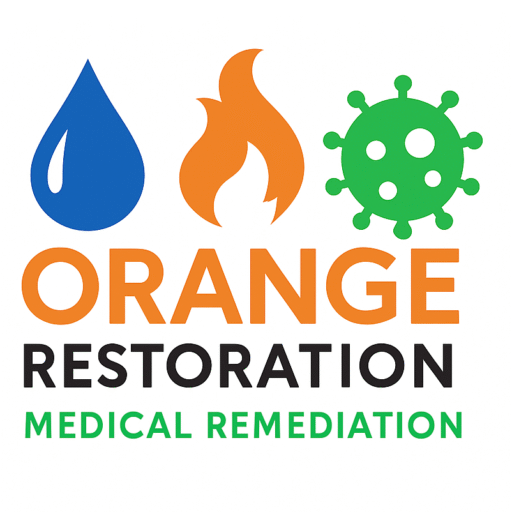Allergies are just one of many health issues that would cause an increased susceptibility to mold-related health concerns or mold sensitivity. CIRS, Lyme disease, Chronic Obstructive Pulmonary Disease (COPD), Asthma, autoimmune diseases, and any immunocompromised medical ailments should all consider getting an Indoor Environmental Professional (IEP) involved in helping with their health solution to their home’s mold contamination.
Table of Contents
Having an IEP advocate for you by systematically managing the multidisciplinary collaboration of medical professionals, the home remediation professionals, and environmental lab testing is vitally important for expediting your project and ensuring utmost attention to your home and your health particular details.
For people suffering from illnesses listed above, mold removal work in your home should be done by a medically important or medically sound trained remediation team.
“Mold can be especially dangerous for infants, the elderly and people who have existing immune system problems. In general, the symptoms of mold exposure can vary from person to person and can grow rapidly worse. People with heart and lung problems may be susceptible to mold-related health problems even when others exposed to the same environment don’t develop problems.” – Mold Growth Imposes Serious Health Effects

Focus on Mold Sensitivity
Our team should be put on the list of most trusted but also most meticulous. We are specialized in medical grade remediation and our team is passionate about restoring families’ lives to normal. If you have allergies, mold can have a more severe impact on your life, but also, cleaning with the wrong chemicals can damage your health even more!
That is right! Many of the suggestions for mold removal with bleach or other harmful chemicals are not recommended for those suffering from severe health conditions. Furthermore, even traditional remediation techniques from a professional remediation team are not enough. Traditional remediation processes will still leave behind particles such as mold fragments, dead mold spores, and mycotoxins.
With medically sound remediation services, absolutely all mold is removed. Actually, our team needs to prove it with a Post Remediation Verification (PRV) testing by a third party testing company. We are passionate about passing the PRV tests on the first attempt.

How can Mold Impact Health?
Mold exposure can have a significant impact on human health, with symptoms ranging from mild discomfort to severe, life-altering conditions. The extent of the impact depends on factors like the type of mold, the level of exposure, and the individual’s overall health and sensitivity. Among the many types of mold, black mold (Stachybotrys chartarum) is particularly notorious for its harmful effects.
Here are the four most common ways mold can affect your health:
Breathing Problems: Mold spores can enter the respiratory system, leading to coughing, shortness of breath, wheezing, and other symptoms.
- Mild exposure: Symptoms remain manageable and may not escalate.
- Severe exposure: Conditions like lung swelling, internal bleeding, or chronic respiratory diseases can develop, posing serious health risks.
Low Energy: Mold exposure can sap energy due to the immune system’s response to mycotoxins in the bloodstream.
- Body’s defense: The production of chloral hydrate, a sedative, may lead to chronic fatigue.
- Additional symptoms: Muscle pain, joint discomfort, and drowsiness can accompany prolonged mold exposure.
Poor Blood Circulation: Prolonged exposure to mycotoxins can disrupt blood circulation, causing serious complications.
- Potential symptoms: Irregular heartbeat, blood clots, and even internal bleeding.
- Long-term risk: While severe effects are less common, individual tolerance levels vary significantly.
Weak Immune System: Exposure to black mold introduces mycotoxins into the body, which can suppress immune function.
- Health risks: Increased vulnerability to infections, viruses, and illnesses due to reduced immunity.
- High-risk environments: Damp and humid spaces often harbor higher concentrations of mycotoxins, compounding health risks.
Tips for those with allergy-prone & mold-related sensitivities to prevent Mold Growth:
- Maintaining indoor humidity below 50%. Yes, consider buying a dehumidifier!
- Regularly cleaning areas prone to mold, like bathrooms and basements. You might need to read more of our Restoration Blogs where we cover maintenance often!
- Using air purifiers with HEPA filters to trap mold spores. HEPA Filters also need to be changed over time!
Defining Mold Sensitivity
If you have suspicions of mold growth in your home, get a professional involved to test your home’s air. With mold sensitivity, the risks are increased and worsen with conditions like asthma, sinus infections, and chronic fatigue. The most at risk, such as children, seniors, and those with pre-existing allergies or respiratory issues.
“Besides allergens, mold can pose other health risks to susceptible people. For example, mold can cause infections of the skin or mucous membranes. Generally, however, mold doesn’t cause systemic infections except for people with impaired immune systems, such as those who have HIV/AIDS or who are taking immunosuppressant medication.” –Mayo Clinic
The Dangers of Mold Sensitivity
What it is: The definition says mold sensitivity is an overactive immune response to mold spores or mold fragments.
Expanding on that definition, many experience respiratory distress, excessive sneezing, watery eyes, and the shut down of possibilities of enjoyment of life. These are often the results of acute or sudden mold exposure for those with mold-related sensitivities. Long term mold exposure can end your enjoyment of life entirely or significantly reduce your ability to thrive. Mold is not exactly the silent killer, but prolonged exposure can be debilitating to your health. When you have mold sensitivity, like discussed in the quote above, mold can cause an impaired system to allow infections.
“Molds can trigger asthma episodes in sensitive individuals with asthma. People with asthma should avoid contact with or exposure to molds.” – Environmental Protection Agency
Allergens Related to Mold Sensitivity
It is easy to group all the microscopic particles and microbial growth into the umbrella of mold, but a lot is going on. Many other allergens are produced by mold, such as mycotoxins, volatile organic compounds (VOCs), and microbial fragments. These nano-sized particles are also irritants to the body, especially for those with allergies, asthma, and mold-related sensitivities. While so many can sit and speculate what might be impacting your health, the science for extracting all these nano-sized particles has come a long way.
“Think of mycotoxins as the toxic waste of mold spores. These microscopic particles can enter your body in every breath, causing inflammation and other health issues.” –Orange Restoration Medically Sound Remediation team
Chronic Inflammatory Response Syndrome (CIRS) has become the leading cause for the need for medically sound remediation sciences, but at the same time, allergies, asthma, and mold-related sensitivities have increased in occurrences also.

Medically Important Mold Removal for Asthma Sufferers
When mold combines with pre-existing lung issues, mold exposure is more likely to cause symptoms that impact your life. Medically certified mold removal is suggested for mold found in homes of those with asthma as the process of medically important mold removal is essential.
“If you or someone in your house has asthma, any existing mold can be a real problem. Exposure to mold can exacerbate symptoms for asthma sufferers who tend to be more sensitive to the effects of mold. Mold itself isn’t the problem; however, it produces substances that potentially carry health risks. Some people may experience fever, shortness of breath, eye irritation, rashes, and stuffy nose. If you are experiencing any or all of those symptoms it could be useful to check your home for the presence of mold.” –Mold and the The Effect It Can Have On Your Health
Fast Mold Remediation for Health Emergencies
Our team is standing by to help for mold related emergencies where mold impacts your health. We are always on call 24/7 for flood emergencies, but when a medically important remediation case comes along, our team jumps into action immediately. Medically important remediation is usually in partnership with a referring physician and an indoor environmental professional (IEP).

With our decades of experience with mold remediation, we have always worked to listen to homeowners to fully understand their health concerns and work to do the best to serve them by accountable and quality remediation work. We are passionate about taking on the battle against mold to get families back into their homes ASAP.
“Breathing easy in your home isn’t just a luxury—it’s a necessity. We’re here to make that a reality for you and your family.” -Orange Restoration team member

